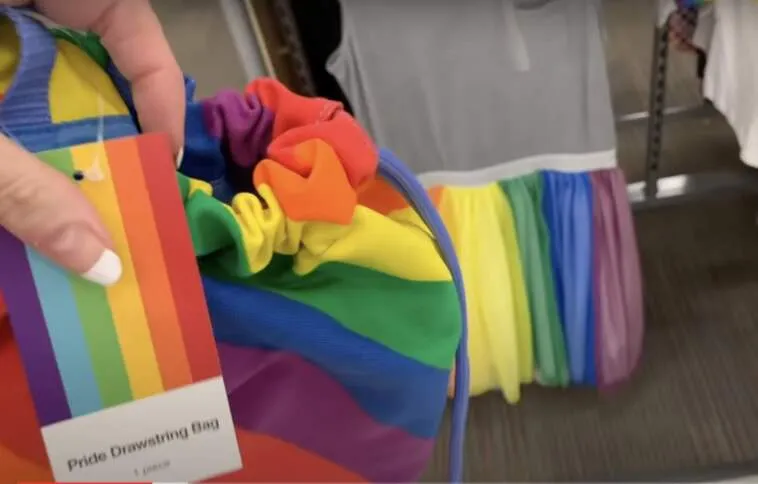(USA Today) Love-themed Mickey Mouse backpacks. Pronoun pins. “Not a Phase” hoodies. “So gay for each other” greeting cards.
Every year, national brands cozy up to LGBTQ+ Americans with colorful merchandise for Pride Month. This June, those displays may not be as loud and proud.
“Especially during Pride season, most companies like ours are pretty busy working on Pride projects. I can tell you for myself, I have not been, and I think it’s across the board,” said Matt Skallerud, president of Pink Media, which helps brands reach the LGBTQ+ demographic.
Mainstream brands used to brush off anti-LGBTQ+ sentiment. That changed last year when conservatives organized boycotts online that slashed sales.
National retail chain Target moved its Pride displays from the entrances to the back of stores after conservative activists confronted employees and vandalized displays. This year, Target is scaling back its Pride collection and won’t carry the collection in all stores.
Bud Light, owned by beer giant Anheuser-Busch, is still struggling after last year’s conservative blowback over a social media campaign with transgender influencer Dylan Mulvaney.
“The goal is to make ‘pride’ toxic for brands,” conservative commentator Matt Walsh wrote on X, formerly Twitter, at the time.
The strategy worked. Activists rallied supporters using hashtags and slogans like “go woke go broke” and held boycotts and other actions they called “Bud Lighting.”
Not only did sales suffer, some in the LGBTQ+ community turned away from Target and Bud Light, too, for bowing to conservative pressure.
Now brands are navigating the volatile political climate more gingerly. Expect fewer rainbow logos, Skallerud says.
“Nobody in the media, marketing and advertising world wants to admit how heavy and hard this has been,” he said. “Ever since Target and Bud Light had their fiascos last year, a tremendous number of brands have decided it would be much better to sit on the sidelines and let this sort itself out.”

Matt Skallerud, president of Pink Media Matt Skallerud
Retailers and brands tone down Pride merchandise, promotions
Opposition from some conservative quarters is common, but bursts of outrage usually fizzle quickly. In fact, before last year, companies were more likely to face criticism for “rainbow washing” – using Pride promotions to signal support for the LGBTQ+ community without making meaningful commitments.
That’s not the case anymore. So, after years of weighing in on divisive topics like abortion, immigration and racial equity, business leaders are trying to steer clear of the nation’s culture wars.
Transgender issues, in particular, have emerged as a conservative flashpoint. Hundreds of bills restricting LGBTQ+ rights have been introduced and dozens have passed. Harassment and violence targeting gay and trans people have surged. Last year’s backlash against Target was largely driven by false allegations that it was selling “tuck-friendly” swimsuits for children.

Neil Saunders, managing director of GlobalData, says mainstream brands know they can’t please everyone. He expects they will celebrate Pride in moderation, toning down the merchandise and keeping promotions under the radar.
“If you promote Pride, some people will be unhappy with it. If you don’t promote Pride, some people will be unhappy about that. It’s not a battle you can win completely, which is why some retailers and brands are taking a middle-of-the-road approach and keeping it moderate,” he said. “They are doing some promotion but they are restricting it to things that they think are palatable and acceptable for most people.”

Saunders does not expect that to change anytime soon.
“The country is extremely polarized at the moment and there are very few signs that that will change, so I think for the immediate future, we will see this type of approach continue,” he said. “Retailers and brands will be more cautious about how they promote issues and causes.”






